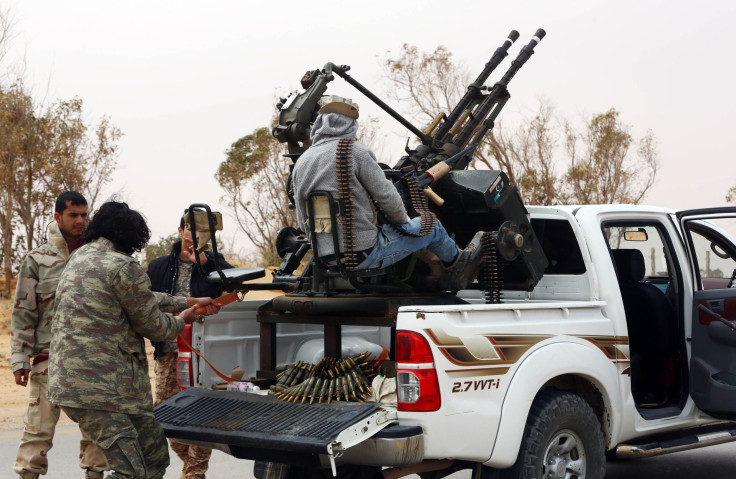ISIS ‘Significantly Expanded’ Its Hold In Libya Amid Political And Security Vacuum: UN Report

Experts in the United Nations said in a report that the presence of the Islamic State group, or ISIS, had been “significantly expanded” in Libya and that the group is making use of the political and security vacuum in the region to grow its network, according to media reports.
The experts monitoring the U.N. sanctions against Libya said that ISIS has successfully recruited marginalized communities in the city of Sirte in central Libya. The group has also reportedly increased its operations in Sabratha and Tripoli by recruiting residents, a move reinforced by foreign fighters. The report also said that Libya has become a more attractive place for the foreign fighters who enter the country through Sudan, Tunisia and Turkey.
“The rise of Isil (ISIS) in Libya is likely to increase the level of international and regional interference, which could provoke further polarization, if not coordinated,” the U.N. experts said in the report, according to the Guardian. “In anticipation, Isil has been spreading a nationalistic narrative, portraying itself as the most important bulwark against foreign intervention.”
Western officials currently estimate that about 6,000 ISIS fighters are present in Libya, up from U.N.’s estimate last year saying that the extremist group had nearly 3,000 fighters in the region. The U.N. experts also investigated if ISIS fighters could use a backup of the banking system in Sirte to misappropriate funds. The banking employees said that the system was either damaged or outdated.
“Consequently, control over Sirte does not give Isil access to state finances or to the wider Swift system, (a member-owned cooperative that is used by banks for account transfer requests and other secure messages),” the experts said, according to the Guardian. “It is, however, likely that the site continues to hold all Libyan historic banking data, which could prove useful to anyone seeking to mask fraudulent transactions.”
The U.N. experts also said in the report, according to AP, that all the parties involved in the fighting in Libya have been receiving arms illegally with the support of a few U.N. member countries. Reiterating that arms embargo to be maintained and enforced, the U.N. report also said that weapons not only encourage the instability in the region but also have “a negative impact on the security situation in Libya and its political transition.”
According to U.N. officials, the armed groups have been conducting kidnappings and have smuggled refugees, oil products, subsidized goods and profits from foreign currency exchange schemes in an effort to diversify their source of income. The report also added that the asset freezes and travel bans on individuals from the Gadhafi regime have constantly been violated as large amounts of assets stay hidden and accessible to be used while travel bans have not been followed completely.
“While ISIL does not currently generate direct revenue from the exploitation of oil in Libya, its attacks against oil installations seriously compromise the country's economic stability,” the six-member panel said in the report, according to AP. “Libyans have increasingly fallen victim to the terrorist group's brutalities, culminating in several mass killings.”
Libya has been facing a conflict since the rebels — backed by Western allies — overthrew the rule of Moammar Gadhafi in 2011, triggering a power struggle between two different political factions. Since 2014, an internationally recognized government has been in control in the far eastern part of the country while a rival Islamist government is based in Tripoli. The U.N., meanwhile, has been trying to create a united government to arrange services to millions of people in the country and to fight back ISIS militants.
© Copyright IBTimes 2024. All rights reserved.






















